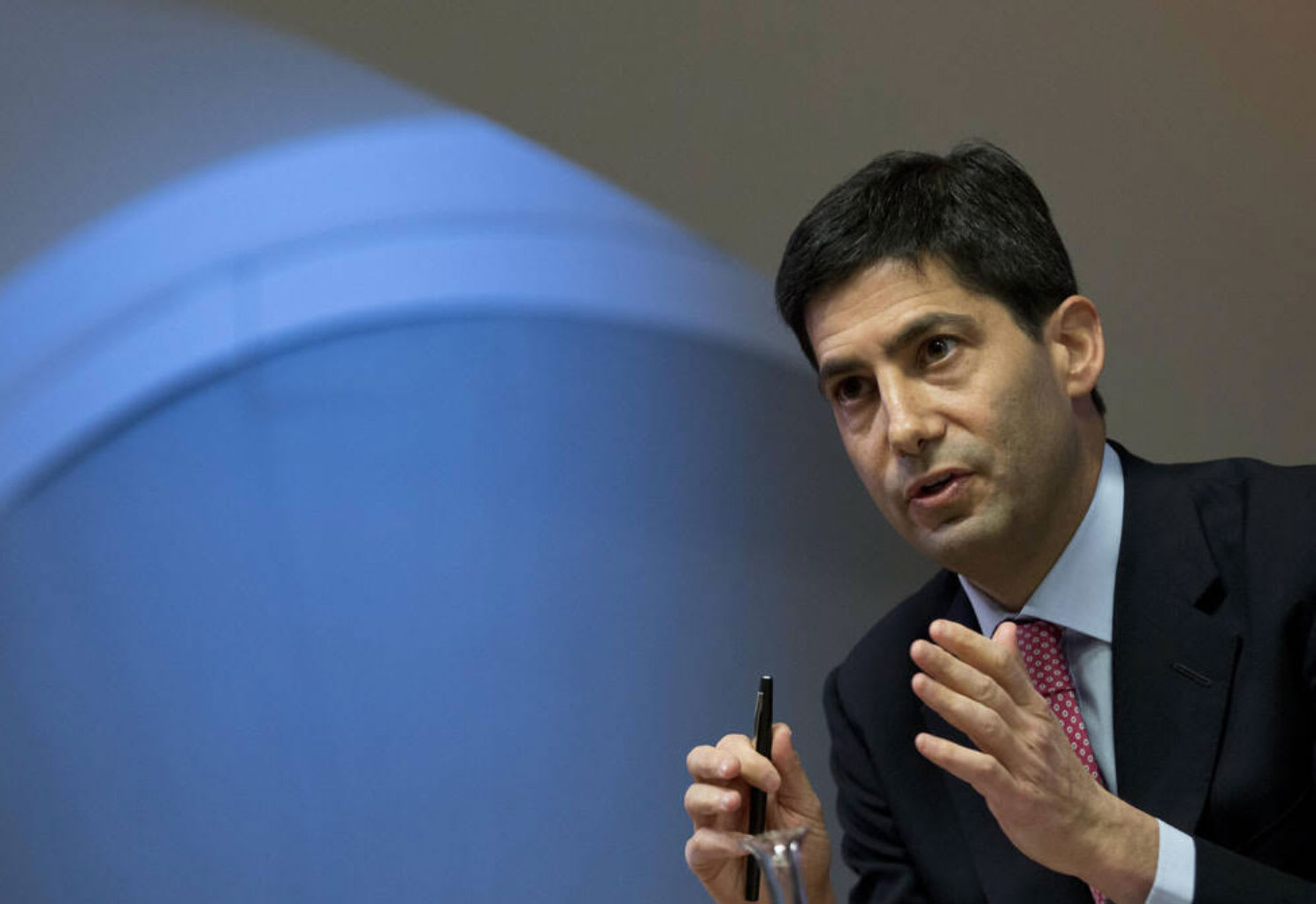Transcript: Raphael Bostic on "Face the Nation," May 3, 2020
The following is a transcript of an interview with Federal Reserve Bank of Atlanta President and CEO Raphael Bostic that aired Sunday, May 3, 2020, on "Face the Nation."
MARGARET BRENNAN: We turn now to the head of one of the 12 banks that make up the Federal Reserve System Raphael Bostic. He is in Atlanta this morning. Good morning to you.
FEDERAL RESERVE BANK OF ATLANTA PRESIDENT RAPHAEL BOSTIC: Good morning, MARGARET.
MARGARET BRENNAN: We just heard that very bleak assessment, in some ways, from the Federal Reserve chair. In the past six weeks alone, 30 million Americans have filed for unemployment claims. Are we headed for a depression?
BOSTIC: Well, when I- when I think about this question, I think the first thing to be mindful of is that the Federal Reserve is acting boldly and decisively to try to provide support for markets all across this country. Look, we knew that coming out of this public health crisis our- that the response was going to do damage to the economy. And that was required if we were going to get to the other side. What we've tried to do is really provide support to give people a bridge from that pre-virus situation to the post-virus situation. And let me just say, in terms of the numbers, I think we knew that the jobless numbers were going to be bad for March. They're going to be tough again this Friday. But I think the real question, the thing I'm focusing on, is how many of these- these jobs are going to- job losses are going to be permanent as opposed to those that are going to be temporary losses. And a lot of the--
MARGARET BRENNAN: And what is the answer to that question?
BOSTIC: Well, we're going to- we're- we are- a lot of the responses that we've been doing have been aimed to try to provide support and relief. And what I would tell you is right now it's too soon to tell. The- the Pay- Paycheck Protection Program, that money is just getting into the system. The economic impact payments, those are just going into the hands of families and households. And what we're going to do over the next week and several weeks is continue our outreach. Call businesses, talk to people and really try to find out whether the relief that's been offered has- is sufficient or whether they need more. And also whether there are pockets that are missing. And if there are, we will talk to policymakers and make sure they're aware of it, to see if there are other things that might be done.
MARGARET BRENNAN: The actions the Fed have taken are pretty unprecedented. In terms of things that you are forecasting and warning about, I know you personally, last month, said that the month of May could be make it or break it for many businesses. It's not just about cash anymore. It's about staying solvent. Does that mean you're predicting a large number of bankruptcies in the weeks to come?
BOSTIC: No, it doesn't mean that at all. And let me just provide some context. We know that for many businesses and for many families, they don't have six or seven or eight months of savings. Instead, they may only have one or two months of savings, which means we're getting about to the time when those savings are going to be depleted. This is why so many of the actions that have been taken have been so important, getting relief into families. And so what we're trying to do right now is understand to what extent is that relief providing its service and keeping people away from those bankruptcies because it is not in our interests for those bankruptcies to happen. That will mean that much more of this is permanent than temporary. And we're going to do all we can to make sure that doesn't happen.
MARGARET BRENNAN: So you're president of the Atlanta Fed. That means you monitor closely what's happening in the American South. States like Florida and Georgia are reopening. What do- what do these initial days and weeks indicate to you? I mean, just because consumers can go out, does that mean they're actually going out and spending?
BOSTIC: Well, we've talked- we've talked to a lot of folks, a lot of consumers and a lot of businesses, and what we're hearing is that many are actually being quite thoughtful in terms of how they're approaching this. You know, one of the things that is very important as you look through the South is that the virus is presenting itself differently in different populations. We know that African Americans are being hit much harder by this. And so the response of how we reopen the economy has got to be thoughtful. What I've been encouraged by is that many businesses that have the option are choosing not to do that. I've talked to a number of leaders of- of important and small businesses that say we're going to keep doing our restaurant, our curbside delivery. We're going to keep doing our social distancing to try to make sure that as we open up, we don't do it in a way that adversely impacts the population and leads to another spike in terms of infections.
MARGARET BRENNAN: The Fed chair was clear that he is watching closely what's happening in the mortgage market. So many Americans have had to put off their monthly payments. What level of risk is there? You know the housing market. What level of risk is there that we are facing a banking or financial crisis in the months ahead?
BOSTIC: Well, I was in the government through the last crisis when it was a housing crisis. And fortunately, this is not that right now. What I would say is this, is that there have been some policies--
MARGARET BRENNAN: But could it be in the months ahead? Is that what this warning- that you're watching closely, the mortgage servicers? Is that what you're saying?
BOSTIC: Well, what I'm saying is that we're going to do what it takes to make sure that doesn't happen, that we- we know where there are stress points. We know where there are tensions. And if we see those tensions start to get to a higher level, we're going to- we're going to encourage policymakers across the spectrum to do that. One other thing I would say is that the banking se- sector coming into this crisis is much stronger than it was in 2007 and 2008. There's much more capital.
MARGARET BRENNAN: Yeah.
BOSTIC: We've taken a lot of steps to make sure that- that banks do have resources available so that they are not in that insolvency space. And I'm hopeful that they're going to be able to be part of the solution in terms of extending capital, mod- modifying the mortgages and loans and financial relationships they have with businesses and households in ways that reduces the tension and allows families to be able to forbear for even longer than they can right now.
MARGARET BRENNAN: So one of the things that the Fed did this week was say that it'll essentially buy more debt of- of local governments to help them out. As we've been hearing from governors and local leaders, they're under a lot of financial stress right now. But the Fed chair also said that's basically not- the Fed's job is to lend money, not to spend money. He- he pointed right at Congress and said, it's up to you to do something at this point. What is it that the states need in terms of relief, from your point of view, from what you are seeing?
BOSTIC: Well, first, I would just say that as the Federal Reserve, we stand ready to act as much as we can within the limits of the law. And the chair is exactly right. We are- we have limits as to what we can do and how much support we can offer. I think it's an open question as to how much more is going to be needed. And we're going to continue, as we engage with governments and helping them with their financing, to understand the depth of that need--
MARGARET BRENNAN: Yeah.
BOSTIC: --and then communicate that to policymakers so they can decide how much extra support might be necessary. But, you know, for us, we are very much in a situation where we're going to do what we can, what we're legally allowed to do as much as we can.
MARGARET BRENNAN: Right.
BOSTIC: And then take information and get that to policymakers--
MARGARET BRENNAN: Okay.
BOSTIC: --so they can decide on that next step.
MARGARET BRENNAN: All right. Thank you very much. We'll be right back with Gary Kelly, the head of Southwest Airlines.



